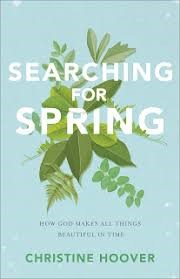
by Aaron Hanzel | Apr 5, 2018
Recently there has been a few deaths surrounding me. One of my dear friends lost his father, suddenly, to a disease. Another of my friends lost their unborn child, suddenly, to complications. My heart breaks for them over and over, but why?
Isn’t at the core of the Christian faith the sustained reality of “life after death”? Both of my friends whom I mentioned are strong believers, so why does the pain of death still hurt? Are we not blessed with the understanding that death isn’t the end?
I find it interesting that, at times, I push aside my emotions and focus on the promises of God. Then there are times that I melt into heartbreak and seek the assurance of the promises of God. There seems to always be a battle of the mind versus the heart when confronting grief. I’ve heard many people give their input as to why this happens. Some have said that it’s the battle of the heart; confliction against the flesh. Others have said that it’s the mind; focus and meditation are the issue. I find it to be much simpler than that. We hate death.
God the Father, God the Son, God the Holy Spirit and the believer – we hate death. The unifying and loving embodiment of the sanctified believer is persistently ushered into the reality that WE HATE DEATH – emotionally and logically hate death. Our mind and our heart counterpunch each wonderful stride against death because, praise be to our Savior, it is not meant for us.
For the secular world, however, hope is not a factor in the mourning process. Most times, it is difficult to face such tragedy and loss with positivity. Rather, it is just an aimless agony of desire. I think most often I find it difficult to empathize with someone mourning if the one who died was not a believer. I empathize with their loss, but hope is such a critical element of the Christian mourning process.
Good Friday is a perfect example of what Jesus thinks of death. He didn’t enjoy the journey to the cross. He even asked God if there was another way. Death is the separation from God, so naturally the remedy of such separation would be the contrast: embrace the Lord.
As Christians, how do we mourn well? We worship. A broken and grieving heart is an example of where God’s beautiful handiwork can be seen. My friend who lost a parent and the couple who lost their unborn child had every reason to be angry and hurt, but they sought the face of God.
My friend praised the faithfulness of God in loss of his father. My friends praised God that He prepared their hearts early on. Mourning well looks beautiful, when the body of Christ comes together, hates death and praises the Lord.

by Karen Kinnaird | Apr 3, 2018
“You don’t have to be blooming to be growing.”
Take devotional writings, hand lettered Scripture verses, beautiful paintings and creative photography, intertwine them all together and the result is the unique book “Gracelaced.” Published in 2017 by Harvest House Publishers, this beautiful book of 32 devotions is crafted by author, artist, entrepreneur and speaker Ruth Chou Simons. She is scheduled to be a keynote speaker at the 2018 BGCO Women’s Retreat in April.
The first several times I picked up this book, I never read a word. I just kept turning the pages, enjoying the illustrations and Scriptures. I was actually tempted to tear out the pages and frame them. But even better, the artwork corresponds to each devotional writing. With just the right length, the devotions are short enough to fit into a busy schedule but spiritually meaty enough to take away and ponder. The book is what Simons calls “a visual journey through some of God’s faithful promises.”
Based on four seasons of the heart, Simons weaves these seasons into four sections:
Winter: Resting in God’s Character
Spring: Rehearsing the Truth
Summer: Responding in Faith
Fall: Remembering God’s Provisions
One of my favorite sections is Winter in which Simons writes about “running behind and running on empty”. She focuses in on ceasing to frantically strive and ceasing to live in fear. Readers are beckoned to focus on Jesus’ character and to wait, trust and rest.
This high quality hardbound book includes a textured cover and glossy paper which makes it an extra treat. It makes for a great coffee table book.
This isn’t a book to dive into and knock out in a weekend. It is a book to be savored slowly, letting the beauty and rich devotional thoughts impact your soul. With words that are both comforting and calming, it’s a book that can be read time and time again. “Gracelaced” is designed to be interactive. The book lists Scriptures to “delve deeper” and allows space for journaling and responding to questions for application.
This book and Simon’s prints are a great gift idea for any woman, especially for Mother’s Day or a birthday. The accompanying “Gracelaced Seasons: A Guided Companion” and the “Gracelaced 17 Month Planner” for 2018-2019 are also available.
If you are seeking to “find God’s grace laced through everyday life” this is a must-have!
Learn more about Ruth Chou Simons, the Gracelaced Shoppe and Gracelaced blog at www.gracelaced.com.

by Ryan Smith | Apr 2, 2018
Easter is a time when church families gather together to celebrate the resurrection of Jesus Christ. If there is any day worth celebrating for the church, it is this one. Jesus is alive!
But once the pictures have been taken, the Easter eggs found, and the palette of pastel clothes tucked back into the closet, most of us are done celebrating Easter. We return to our day-to-day routines and wait for Christmas when we can do it all again.
Could it be, however, that we as Christ’s people still have more to celebrate?
I want to offer three days for consideration after Easter. Each of these days marks a vitally important day in the life of the early church as well as a continual testimony of God’s work through the Holy Spirit today.
Perhaps you would consider putting these days on your calendar as a way to continue to celebrate the resurrection and the ongoing work of the Spirit. These might serve as excellent opportunities for you, your family, friends, neighbors or kids to celebrate God’s work in the weeks and months following Easter.
The Ascension – 40 Days After Easter (2018: May 10)
We all know Jesus appeared to the disciples and many others after He was raised from the dead. We even include the ascension in many of our Easter Pageants (if we can find the wires and a Jesus who isn’t afraid of heights). But we often think of this happening over the course of just a few days. In reality, Jesus spent 40 days displaying His resurrected body and victory over death. After those 40 days, He was taken up into the clouds in view of a gathered group of disciples on Mt. Olivet.
How can you celebrate? Consider taking your family outside for a picnic. Set out a blanket on top of a small hill. Read Acts 1:1-11. Look at the clouds together. Consider what it might be like when he returns in the same way he left (Acts 1:11).
Pentecost – 50 Days After Easter (2018: May 20)
The arrival of God the Holy Spirit should be a tremendous day of celebration for the Christian. After all, He is the one who guides us into all truth and is the source of daily life as He conforms us to Christ-likeness through the Word. Pentecost was also the day the disciples spoke in different languages, and Peter stood up preaching the Gospel boldly as thousands were saved.
How can you celebrate? Read the events of Acts 2. Spend ample time in prayer and the Holy Spirit-inspired Scriptures (perhaps Psalm 119 celebrating the leadership of God through His Word). Go to a website like joshuaproject.net and consider the almost 17,000 different ethnic groups in the world. Remembering God’s desire that all tribes, tongues and nations would be blessed through the Gospel, commit to pray for an unreached people group.
Healing the Lame Beggar – Unspecified Date.
The next record in Scripture after Pentecost is the healing of the lame man in Acts 3. On this day, Peter and John first met a man’s physical need in order to boldly declare the gospel message. They were also thrown in prison for the Gospel.
How can you celebrate? Read Acts 3:1-4:31 together as a group of friends or family. While we don’t have a specific date for this event, you could pick a day a week or two after Pentecost. Consider in advance how you could meet a physical need as an avenue to boldly share the Gospel.
Serve on that day (starting at the ninth hour would be appropriate) at a homeless shelter, food pantry or other mission. Talk together with your kids, family or group about why meeting physical needs is important as a means to the Gospel. Also remember those around the world who are in prison for sharing the Gospel. Pray for them and their boldness in continuing to uplift the good news of Jesus Christ.

by Caleb Moore | Mar 29, 2018
I’m almost scared to call myself an evangelical anymore. Not because of what it should mean but because of what some have tried to make it mean. The term evangelical seems to have more political overtones than religious ones these days.
However, there was a time when its definition was obvious, and to most, a very positive one. It was coined during a time when Christianity was booming all over the United States. People were quick to talk and share their faith with neighbors and friends, and God used that to spread His message of hope and grace in an incredible way.
However, after talking with many Christians on the subject, I am wondering if we should use that term at all. Not because of the political connotations but simply because we don’t seem to be very good at evangelizing.
To be an evangelical used to mean that you were active in evangelizing the lost. It meant you shared your faith with others openly and regularly. When I travel and teach I will often do a quick survey of the audience and ask how many of them have shared their faith at least once with a non-Christian. Usually, I see about a third of the audience raise their hands.
Then I will ask how many share their faith on a regular basis, and a much smaller number of people raise their hands. I know this isn’t the most scientific way to conduct research, but it does match up with a LifeWay Research study that showed 61 percent of Christians don’t share their faith on a regular basis. In fact, some studies show that we are much more likely to criticize than evangelize.
Think about how many people in the past had to share their faith for the message to reach your ears. For thousands of years men, women and children from every background have passed on the knowledge of their salvation to others. It has crossed mountains and oceans and overcome incredible struggles just to land at your feet. I cannot think of a greater tragedy than for that message to travel all those miles and all those years just to stop with me.
There is bright spot, however. It turns out that Millennials are much more likely to share their faith then their parents were. I have been amazed lately at the depth and commitment being shown by the younger generation. In spite of all the challenges that face them and the amount of things that fight for their attention, this generation of students are grasping firmly onto their responsibilities as believers to spread the Gospel.
Although God could grow His church any way He wants, He has chosen to grow it primarily through the love and sacrifice of other Christians. This Easter, invite someone to church, and then go one step further and invite them out for lunch. It is through personal relationships that we encounter the most discipleship.
If you have yet to share your faith this year, begin to pray that God would soften your heart for the lost and open your eyes to opportunities. We can’t just assume it is the job of pastors and church staff to reach the lost. God never blesses us just so we can keep that blessing for ourselves. It truly becomes a blessing when we pass it on to others.

by Karen Kinnaird | Mar 21, 2018
“God can make something beautiful out of you, even the most hopeless, broken-down thing in your life, especially that. The beauty will most likely come- through pain, waiting, wrestling and difficulty” Christine Hoover
“What if beauty could actually be found in the very things our skewed hearts deem ugly? What if all that we resist – suffering, confession, brokenness, loneliness, death – were the very things in process of becoming beautiful?”
This is the very question Christine Hoover poses in her new book “Searching for Spring: How God Makes All Things Beautiful in Time.” Hot off the press in March 2018 and published by Baker Books, this is Hoover’s fourth book. A popular author, speaker, blogger and church planting pastor’s wife, Hoover’s unique, artistic writing style is deep and intuitive. 
Focusing on Eccl. 3:11, “God has made everything beautiful in its time”, Hoover takes readers on a treasure hunt through the Eccl. 3:1-11 poem and through the changing seasons. Concentrating on winter, she explores the question “How does God meet us in our deepest, darkest pain and how does He turn that pain into beauty?”
Writing about “inconsolable things,” described as Jesus’ unsaid and unfixed things, Hoover encourages readers to navigate that wintery season by enjoying the beauty of everyday life and looking to the hope of spring by “going all-in on a promise of unexpected beauty sprouting up through that very affliction”.
Each chapter of the book has its own unique personality. Hoover writes with vivid imagery incorporating the beauty of God’s creation with creative references to God’s character, describing Him as Composer Poet, Patient Providence, Author, Artist and Joy Whisperer.
My favorite chapter is God is a Potter: He Molds Beauty When We Surrender Control in which Hoover writes about how our “carefully constructed worldviews” cannot bear the weight of “inconsolable things.” This worldview implies that we will worship God if we can mold Him; if He comes through for us; without waiting, without pain, without suffering. We want an easy life with instant results.
The truth is “we are meant to live with imperfections and things left undone in the present.” We know God makes all things beautiful, but He doesn’t tell us how or when He’s going to do it.
God has called us to stop wrestling and rest; to stop trying to figure it out and trust; to stop trying to control and surrender. He wants us to lay down as moldable clay on the Potter’s wheel, even with pain and fear and rest. God wants us to respond with humility and submission to His slightest movement, noticing His activity around us all the more. In His time and in His way, we “stand in a hope that a greater story is unfolding…God is up to something.”
“Searching for Spring” is the first book I have read of Hoover’s, and although I had no expectations, I was pleased to be challenged with such deep spiritual truths and creative, captivating word pictures. Reading the book was like getting my hands on her journal, reading her intimate thoughts and soaking up her perspectives.
Hoover is a thinker, and although she didn’t specify the details of her own suffering, it was clear that she has allowed God to mold her through her own experiences and circumstances.
I highly recommend “Searching for Spring”. This book will encourage and offer hope to those in any manner of struggle. I recommend it be read slowly, one chapter at a time so the truths can be processed and applied.
The winter is long and cold, but spring is coming!
For more information about Christine Hoover, go to www.gracecoversme.com.
This review contains my own thoughts and opinions. I received an advance copy of this book from the publisher in exchange for my honest review.

by Angela Sanders | Mar 7, 2018
Few things are as unsettling as finding out you’re just as capable of evil as the next person, that, deep down, you’re just as critical, just as judgmental, and just as intent on getting even and eliminating the competition as the person who once crushed you.
Of course, if we saw temptation coming, we’d do a much better job of guarding against it. We’d pray more, study our Bibles more, practice poker faces and shutting our mouths on purpose, stay rested and sharp, and surround ourselves with painfully honest people who care more about pleasing God than pleasing us.
But we don’t.
Oddly enough, after years and years of living in this jungle, most of us still do a poor job of detecting the Enemy’s approach.
One twig snap and he’s on you, wielding someone just as prone to wander from God’s path and protection as you are to distract, tempt, shame, or jab you where it hurts. Having left your spiritual armor at home because you didn’t feel the need for it, you panic and go primal, ignoring the still small voice that whispers, “Love.”
Anger, fear, jealousy, and pride take over, and you let the poison darts fly. Lethal and quick, your words, actions, and attitude spread wider and go farther than you could ever have imagined, sticking hearts, burning deep, and causing damage you’ll never even see.
It’s your fault and you know it (1 Cor. 10:13).
Oh, the Enemy’s behind it, of course, that heartless commissioner of kamikaze pilots, but you volunteered for duty. Convicted, your heart sinks and begins to suffocate under the weight of the sin you’ve committed.
Thank God for His mercy and grace!
He alone restores. He alone heals broken hearts. He alone takes what the Enemy intends for evil and uses it for our good (Rom. 8:28, Gen. 50:20). He forces His help on no one, though, so the miraculous sometimes takes a while.
That’s okay.
While you wait for the wounded to forgive and to heal, you’ll have plenty of time to confess, plenty of time to plan and do better, and plenty of time to forgive the person who once hurt you.
Because we’re all capable of evil.






